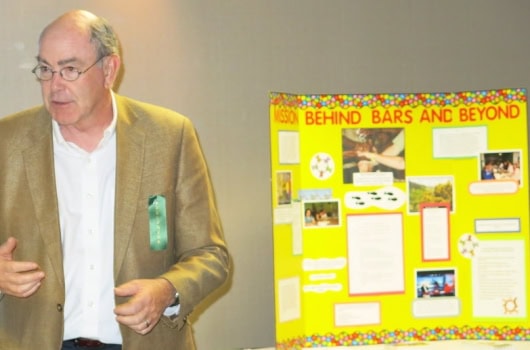Breaking the Chains: Mass Incarceration and Systems of Exploitation
February 16, 2015 | by Rev. Dean Bucalos

When we were fresh out of college, my wife, Anne and I became involved with a group of in our hometown called Volunteers in Corrections. We were assigned to work with someone who was going to be released from a local minimum-security prison. When the group discovered that I had a political science degree, they asked if I would be interested in testifying before the state legislature about upcoming legislation seeking to amend the state’s criminal code and impose mandatory, minimum sentencing.
Being young and brash and way too over-confident, I said “Sure. I’d be glad to do that.” For the next several weeks, I researched the topic and wrote and re-wrote what I was going to say. When the day came to go to the state Capitol, I could not have been more nervous. Though now public speaking comes easily to me, then, my knees were knocking so loudly I am sure the legislators thought someone was pounding on the chamber’s doors to get in. To a full crowd, I read my manuscript and quietly slipped away. I was one of many who asserted that mandatory, minimum sentences would not only take discretion away from our judges but also result in overcrowded prisons. That legislation never got anywhere. However, several years later, during the country’s obsession with the “war on drugs,” federal sentencing laws employed mandatory, minimum sentencing. Nearly forty years later, we are suffering from mass incarceration much of which is related to mandatory sentencing for drug-related charges. Thankfully, things are beginning to change.
Can we make a difference?
Did my testimony make a difference? I will never know. However, I realize now that Volunteers in Corrections and others (myself included) could have done much better in educating and informing our legislators about this issue. A young, nervous 23-year-old shaking in his boots as he testified may have brought some sympathy but it probably didn’t change anyone’s mind about anything.
Make a Difference
A letter or a meeting or a phone call to one of your representatives may change a mind and move us to a better place. Creating a more humane world. Embracing restorative practices. And just think, your knees won’t even have to knock together in the process!
